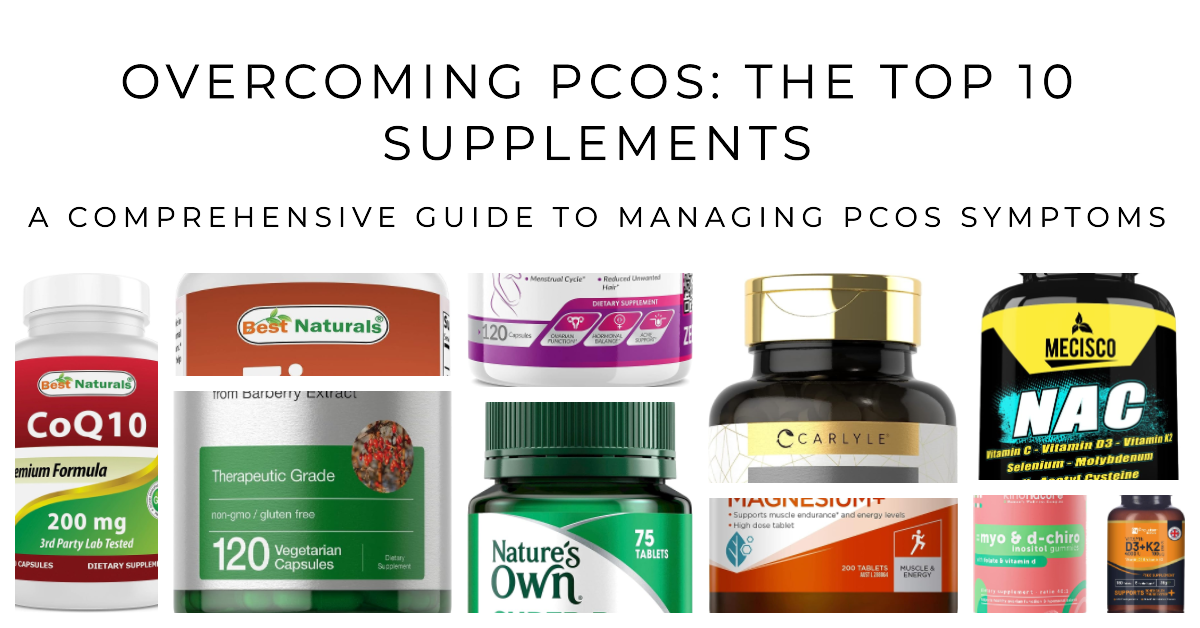Introduction
Key Takeways
- N-Acetyl Cysteine (NAC) offers benefits for PCOS, including improved insulin sensitivity, reduced inflammation, and regulated menstrual cycles. Combining NAC with Selenium can enhance its effects.
- Berberine, found in plants like goldenseal and barberry, has been recognized for its ability to address PCOS symptoms. It is even more effective when combined with milk thistle.
- Coenzyme Q10 (CoQ10) is an antioxidant that supports energy production and offers multiple benefits for PCOS, including cardiovascular health. Its absorption can be enhanced with healthy fats.
- Vitamin B complex plays a crucial role in managing PCOS, supporting energy production, hormone regulation, and overall metabolic health. Adequate levels can be beneficial for those with PCOS.
- When considering supplements for managing PCOS, it’s vital to consult healthcare professionals and choose high-quality, third-party tested products for safety and efficacy.
Hey there! Dealing with Polycystic Ovary Syndrome (PCOS) can be a real challenge, but fear not, because we’ve got you covered. In this article, we’ll be sharing the top 10 supplements that can help you overcome PCOS. From balancing hormones to improving insulin sensitivity, these supplements have been proven to tackle the symptoms and provide relief. So, if you’re ready to take control of your PCOS journey, let’s explore the best supplements and solutions together.
Polycystic Ovary Syndrome (PCOS) is a prevalent condition affecting millions of women around the world. Tackling PCOS often requires a multifaceted approach, combining medical treatments, lifestyle changes, and specific supplements for PCOS.
These supplements play a crucial role in managing the symptoms and enhancing the quality of life for women with this condition. The market is flooded with various products claiming to offer relief.
However, the ’10 Best Supplements for Overcoming PCOS’ stands out as a comprehensive guide, shedding light on the most potent and effective supplements available. Each supplement has its unique properties, from improving insulin sensitivity to regulating menstrual cycles, and even enhancing fertility. While some like Inositol are known for their effectiveness in hormone regulation, others, like berberine, can assist in regulating blood sugar levels.
As with any health condition, it’s essential to consult with a healthcare provider before embarking on any supplement regime. But being equipped with knowledge, like what’s provided in this article, empowers individuals to make informed decisions about their health.
If you or someone you know struggles with PCOS, exploring these supplements for PCOS might just be the breakthrough you’ve been seeking.”
Vitamin D
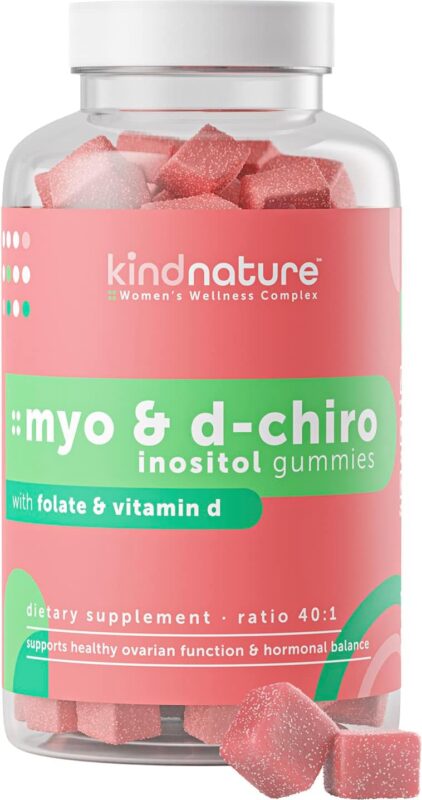
Photo: Amazon
Vitamin D plays a crucial role in managing the symptoms of Polycystic Ovary Syndrome (PCOS). It helps regulate insulin sensitivity, which is often impaired in individuals with PCOS. Insulin resistance is a common characteristic of this condition and can lead to weight gain, hormonal imbalances, and ovulation issues. Vitamin D also plays a role in supporting the immune system, bone health, and mood regulation.
Importance of Vitamin D for PCOS
Vitamin D plays a crucial role in managing the symptoms of Polycystic Ovary Syndrome (PCOS). It helps regulate insulin sensitivity, which is often impaired in individuals with PCOS. Insulin resistance is a common characteristic of this condition and can lead to weight gain, hormonal imbalances, and ovulation issues. Vitamin D also plays a role in supporting the immune system, bone health, and mood regulation.
Recommended dosage
For individuals with PCOS, it is recommended to aim for a daily intake of 1000-2000 IU (International Units) of vitamin D. However, it’s important to consult with a healthcare professional to determine the appropriate dosage based on your specific needs and health status.
Sources of Vitamin D
The best source of vitamin D is sunlight. Your body can produce vitamin D when your skin is exposed to direct sunlight. However, this can be challenging during certain seasons or for individuals who live in areas with limited sunlight. In such cases, food sources rich in vitamin D can help. Fatty fish like salmon and mackerel, fortified dairy and non-dairy milk, and egg yolks are good dietary sources of vitamin D.
Supplement options
If it’s difficult to obtain enough vitamin D through sunlight and food sources, supplements can be an effective option. There are various types of vitamin D supplements available, such as vitamin D3 (cholecalciferol) and vitamin D2 (ergocalciferol). Vitamin D3 is typically recommended as it is more easily absorbed by the body.
Tips for maximizing absorption
To enhance the absorption of vitamin D, it’s important to consume it with foods that contain healthy fats, such as avocado, nuts, seeds, and olive oil. Additionally, taking your vitamin D supplement with a meal can also aid in absorption. Remember to always follow the dosage instructions provided by the supplement manufacturer and consult with a healthcare professional before starting any new supplement regimen.
Omega-3 Fatty Acids
Recommended dosage
The recommended daily dosage of omega-3 fatty acids for individuals with PCOS is 1000-2000 mg. It’s advisable to opt for a supplement that provides a combination of EPA (eicosapentaenoic acid) and DHA (docosahexaenoic acid) for optimal benefits.
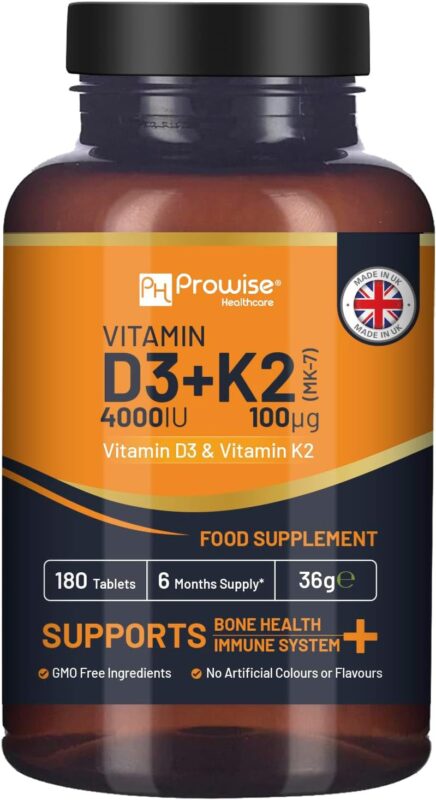
Photo: Amazon
Cold-water fatty fish such as salmon, mackerel, sardines, and trout are excellent natural sources of omega-3 fatty acids. Plant-based sources include flaxseeds, chia seeds, and walnuts. However, it can be challenging to obtain sufficient amounts of omega-3 fatty acids solely through diet.
Sources of Omega-3 fatty acids
Cold-water fatty fish such as salmon, mackerel, sardines, and trout are excellent natural sources of omega-3 fatty acids. Plant-based sources include flaxseeds, chia seeds, and walnuts. However, it can be challenging to obtain sufficient amounts of omega-3 fatty acids solely through diet.
Supplement options
Omega-3 fatty acid supplements, such as fish oil or algae oil capsules, provide a convenient way to ensure an adequate intake of these essential fats. Look for reputable brands that use high-quality fish oil or algae oil sources and have undergone third-party testing to ensure purity and potency.
Combining with Vitamin E for better results
To enhance the effectiveness of omega-3 fatty acids, consider combining them with vitamin E. These two nutrients have a synergistic effect that can further reduce inflammation and promote hormonal balance. Vitamin E can be obtained through foods like almonds, sunflower seeds, spinach, and avocados, or through a supplement.
Inositol
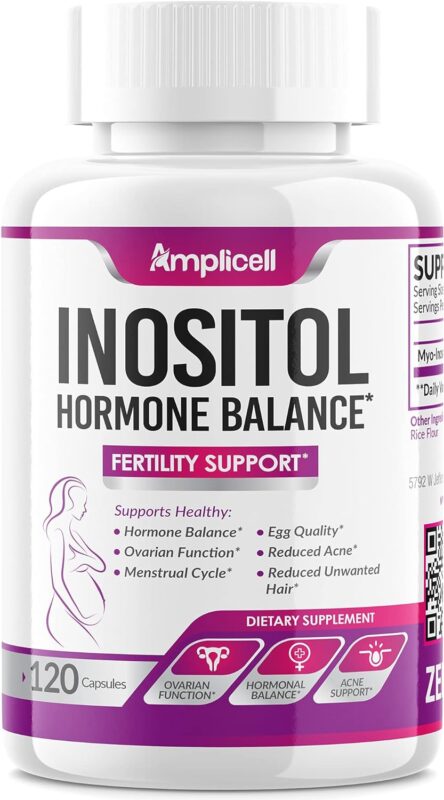
Photo: Amazon
Inositol, a type of sugar alcohol, has been found to have positive effects on various symptoms associated with PCOS. It helps improve insulin sensitivity and reduce insulin resistance, which can lead to better glucose metabolism and hormone regulation. Inositol also aids in reducing testosterone levels, promoting regular ovulation, and improving fertility in individuals with PCOS.
.
Recommended dosage
The recommended dosage of inositol for PCOS is typically 2000-4000 mg per day, divided into two or three smaller doses. It’s important to start with a lower dosage and gradually increase it while monitoring its effects on your body. As always, consult with a healthcare professional to determine the right dosage for your specific needs.
Sources of Inositol
Inositol is naturally present in various foods, such as fruits, beans, whole grains, and nuts. However, it may be challenging to consume enough inositol solely through diet, especially in the therapeutic amounts required for PCOS management.
Supplement options
Inositol supplements are available in two main forms: myo-inositol and d-chiro-inositol. Research suggests that a combination of these two forms in a 40:1 ratio may be more effective in managing PCOS symptoms compared to using either form alone. Look for supplements that provide the recommended ratio for optimum benefits.
Considering a combination of Myo-inositol and D-chiro-inositol
Some studies have shown that combining myo-inositol and d-chiro-inositol in the recommended ratio can help improve insulin sensitivity, hormonal balance, and ovulation in women with PCOS. This combination may also help reduce symptoms such as hirsutism (excessive hair growth) and acne. However, it’s important to consult with a healthcare professional before starting any new supplement regimen.
Magnesium
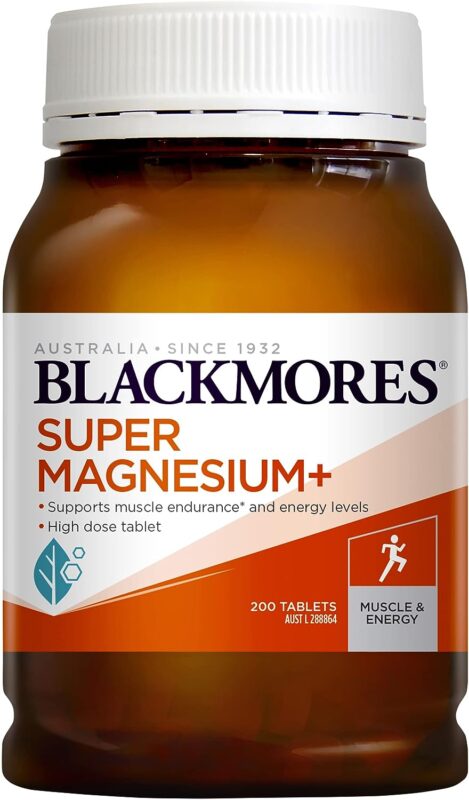
Photo: Amazon
Magnesium is a vital mineral that plays a crucial role in various bodily functions, including energy production, insulin sensitivity, hormone regulation, and stress management. It also supports the production of sex hormones, such as estrogen and progesterone. For individuals with PCOS, magnesium supplementation can help improve insulin sensitivity, reduce inflammation, and promote better overall metabolic health..
Recommended dosage
The recommended daily dosage of magnesium for individuals with PCOS is typically 300-400 mg. However, the optimal dosage may vary depending on an individual’s specific needs and health status. It’s always recommended to consult with a healthcare professional to determine the appropriate dosage.
Sources of Magnesium
Magnesium can be found in a variety of foods, including dark leafy greens (such as spinach and kale), nuts and seeds, legumes, whole grains, and some seafood. However, it may be challenging to obtain sufficient amounts of magnesium through diet alone, especially for individuals with PCOS who may have increased nutrient needs.
Supplement options
Magnesium supplements are available in various forms, including magnesium citrate, magnesium glycinate, and magnesium oxide. Different forms have different levels of bioavailability, meaning they may be absorbed differently by the body. Magnesium glycinate is often recommended for its high absorption rate and low potential for causing gastrointestinal discomfort.
Combining with Zinc for better absorption
To enhance the absorption of magnesium, consider taking it alongside zinc. These two minerals work synergistically to support hormonal balance and nutrient metabolism. Zinc helps regulate insulin sensitivity and supports the synthesis of sex hormones, while magnesium aids in their proper utilization. Combining both minerals can have a positive impact on PCOS symptoms. However, it’s important to consult with a healthcare professional before starting any new supplement regimen.
Zinc
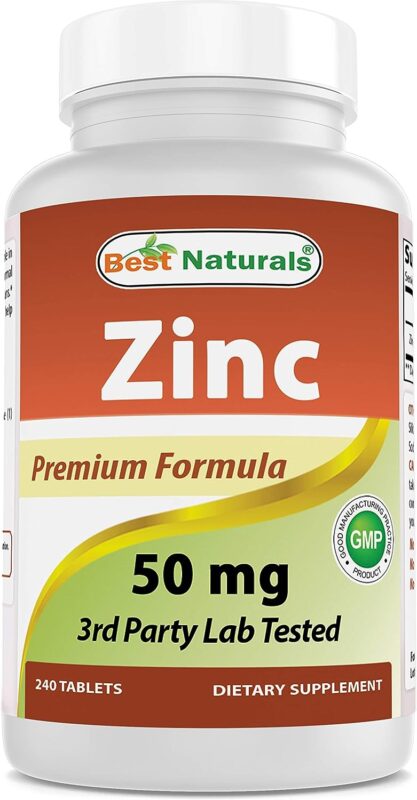
Photo: Amazon
Zinc is a mineral that plays a crucial role in various bodily functions, including hormone production, immune system function, and insulin sensitivity. It supports the proper synthesis and release of insulin, which is important for individuals with PCOS who often experience insulin resistance. Zinc also helps regulate menstrual cycles, reduce inflammation, and support overall reproductive health.
Recommended dosage
The recommended daily dosage of zinc for individuals with PCOS is typically 30-50 mg. However, it’s important to consult with a healthcare professional to determine the appropriate dosage based on your specific needs and health status.
Sources of Zinc
Zinc can be obtained through diet from sources such as oysters, beef, poultry, nuts, seeds, and legumes. However, it may be challenging to obtain sufficient amounts of zinc solely through diet, especially for individuals with PCOS who may have increased nutrient needs.
Any Questions🤔?
Reach out to us! We’re here to clarify and prioritize your well-being. 🌟
Supplement options
Zinc supplements are available in various forms, including zinc gluconate, zinc citrate, and zinc picolinate. Each form has different bioavailability, meaning the body may absorb and utilize it differently. It’s important to choose a supplement that provides a highly bioavailable form of zinc.
Balancing Zinc with Copper for optimal results
When taking zinc supplements, it’s essential to balance its intake with copper. Both minerals work together in the body and maintaining an appropriate ratio is important for optimal health. Excessive zinc supplementation without adequate copper intake can lead to imbalances. Therefore, it’s recommended to consult with a healthcare professional to determine the appropriate zinc and copper ratio for your specific needs.
Chromium

Photo: Amazon
Chromium is a trace mineral that plays an essential role in insulin metabolism. It works by enhancing insulin sensitivity and promoting the proper utilization of glucose in the body. This can be especially beneficial for individuals with PCOS who often experience insulin resistance and impaired glucose metabolism.
Recommended dosage
The recommended daily dosage of chromium for individuals with PCOS is typically 200-1000 mcg (micrograms). It’s important to start with a lower dosage and gradually increase it while monitoring its effects on your body. As always, consult with a healthcare professional to determine the right dosage for your specific needs.
Sources of Chromium
Chromium can be found in small amounts in a variety of foods, including broccoli, barley, oats, green beans, and mushrooms. However, the levels of chromium in these foods may vary depending on the soil quality and farming practices. Therefore, it may be challenging to obtain sufficient amounts of chromium solely through diet.
Supplement options
Chromium supplements, such as chromium picolinate or chromium polynicotinate, are available for individuals who may not be able to obtain enough chromium through diet alone. It’s important to choose reputable brands and consult with a healthcare professional to determine the appropriate form and dosage for your individual needs.
The importance of trace minerals
While chromium supplementation can be beneficial for individuals with PCOS, it’s important to remember that minerals work together and an overall balanced intake is essential for optimal health. Therefore, maintaining a varied and nutrient-rich diet that includes a wide range of vitamins and minerals is crucial.
N-Acetyl Cysteine (NAC)

Photo: Amazon
N-Acetyl Cysteine (NAC) is a powerful antioxidant that offers several benefits for individuals with PCOS. It helps improve insulin sensitivity, reduce inflammation, and regulate menstrual cycles. NAC has also been found to have positive effects on fertility, oxidative stress, and egg quality in women with PCOS
Recommended dosage
The recommended daily dosage of NAC for individuals with PCOS is typically 1200-2400 mg. As always, it’s important to consult with a healthcare professional to determine the right dosage for your specific needs.
Sources of NAC
NAC is an amino acid derivative that can be found in certain foods, such as poultry, yogurt, eggs, and legumes. However, it can be challenging to obtain sufficient amounts of NAC solely through diet.
Supplement options
NAC supplements are available in capsule or powder form. It’s important to choose a reputable brand that provides high-quality NAC supplements to ensure safety and efficacy. Look for supplements that have undergone third-party testing for purity and potency.
Combining with Selenium for enhanced effects
To enhance the benefits of NAC, consider combining it with selenium. Selenium is a trace mineral that works synergistically with NAC to support antioxidant activity, reduce inflammation, and promote optimal hormone balance. It’s important to consult with a healthcare professional to determine the appropriate dosage and ratio for your specific needs before starting any new supplement regimen.
Berberine
The effect of Berberine on PCOS symptoms

Photo: Amazon
Berberine is a compound that has been used in traditional medicine for centuries and has gained recognition for its ability to improve various symptoms associated with PCOS. It helps regulate blood sugar levels, reduce insulin resistance, promote weight loss, and improve lipid profiles. Berberine has also been found to have positive effects on menstrual regularity and fertility in individuals with PCOS.
Recommended dosage
The recommended daily dosage of berberine for individuals with PCOS is typically 500-1500 mg. However, it’s important to consult with a healthcare professional to determine the appropriate dosage based on your specific needs and health status.
Sources of Berberine
Berberine is naturally found in various plants, including goldenseal, Oregon grape, and barberry. However, it can be challenging to obtain sufficient amounts of berberine solely through diet.
Supplement options
Berberine supplements are available in capsule or tablet form. It’s important to choose a reputable brand that provides high-quality berberine supplements to ensure safety and efficacy. Look for supplements that have undergone third-party testing for purity and potency.
Considering a combination of Berberine and Milk Thistle
Some studies suggest that combining berberine with milk thistle may enhance its effects on PCOS symptoms. Milk thistle is a herbal supplement known for its liver-protecting properties and may help support the metabolism of berberine. However, it’s important to consult with a healthcare professional before starting any new supplement regimen to determine the appropriate combination and dosage for your specific needs.
Coenzyme Q10 (CoQ10)

Photo: Amazon
Coenzyme Q10 (CoQ10) is a powerful antioxidant and essential component of energy production in the body. It has been found to have positive effects on various aspects of PCOS, including improving insulin sensitivity, reducing oxidative stress, and supporting egg quality in women undergoing fertility treatments. CoQ10 has also been shown to have potential benefits for cardiovascular health, which can be particularly important for individuals with PCOS who may be at a higher risk of heart disease.
Recommended dosage
The recommended daily dosage of CoQ10 for individuals with PCOS is typically 100-400 mg. However, it’s important to consult with a healthcare professional to determine the appropriate dosage based on your specific needs and health status.
Sources of Coenzyme Q10
CoQ10 is naturally present in small amounts in certain foods, such as organ meats, oily fish, and whole grains. However, it can be challenging to obtain sufficient amounts of CoQ10 solely through diet.
Supplement options
CoQ10 supplements are available in capsule or softgel form. It’s important to choose a reputable brand that provides high-quality CoQ10 supplements to ensure safety and efficacy. Look for supplements that have undergone third-party testing for purity and potency.
Enhancing absorption with healthy fats
CoQ10 is a fat-soluble compound, meaning it requires the presence of fat for optimal absorption. To enhance the absorption of CoQ10 supplements, consider taking them with a meal that contains healthy fats, such as avocado, nuts, seeds, or olive oil.
Vitamin B Complex

Photo: Amazon
Vitamin B complex is a group of water-soluble vitamins that play important roles in energy production, hormone regulation, and overall metabolic health. They can help improve insulin sensitivity, support healthy brain function, and promote healthy hair, skin, and nails. For individuals with PCOS, maintaining adequate levels of vitamin B complex can be beneficial in managing symptoms and supporting overall well-being.
Recommended dosage
The recommended daily dosage of vitamin B complex for individuals with PCOS can vary depending on an individual’s specific needs and health status. Generally, a B complex supplement providing the daily values for each B vitamin is a good starting point. It’s important to consult with a healthcare professional to determine the appropriate dosage for your specific needs.
Sources of Vitamin B Complex
Vitamin B complex is found in a variety of food sources, including whole grains, legumes, leafy greens, lean meats, dairy products, and eggs. However, it can be challenging to obtain sufficient amounts of vitamin B complex solely through diet, especially for individuals with PCOS who may have increased nutrient needs.
Supplement options
Vitamin B complex supplements are available in various forms, including capsules, tablets, and liquid. It’s important to choose a reputable brand that provides high-quality vitamin B complex supplements to ensure safety and efficacy. Look for supplements that have undergone third-party testing for purity and potency.
FAQ (Frequently Asked Questions)
Q: What are the top recommended supplements for managing PCOS?
A: The article “10 Best Supplements for Overcoming PCOS” provides a comprehensive list of the most effective supplements for individuals battling PCOS.
Q: Why are Inositol supplements often recommended for PCOS?
A: Inositol supplements, particularly Myo-Inositol & D-Chiro Inositol, have shown potential in improving insulin resistance, hormone regulation, and enhancing fertility in women with PCOS.
Q: Can supplements alone treat PCOS?
A: While supplements can significantly aid in managing PCOS symptoms and improving overall health, they should ideally be combined with a balanced diet, regular exercise, and medical treatment as recommended by a healthcare professional.
Q: Are there any side effects associated with these PCOS supplements?
A: Most of the supplements mentioned are generally considered safe. However, as with any supplement, potential side effects can occur. It’s essential to consult with a healthcare provider before starting any new supplement regimen.
Q: How long should one take these supplements to see improvements in PCOS symptoms?
A: The duration can vary among individuals. Some might see improvements within a few weeks, while others might need a few months. Consistency is key, and it’s also important to monitor and evaluate changes in symptoms over time
Considering a combination of different B vitamins
The B complex vitamins work synergistically in the body, and it’s often beneficial to take them in combination rather than as individual vitamins. This ensures that you’re obtaining a balanced intake of all the B vitamins. However, it’s important to consult with a healthcare professional before starting any new supplement regimen to determine the appropriate combination and dosage for your specific needs.
Disclaimer
Please keep in mind that nothing said here should be construed as a substitute for professional medical or financial advice from a qualified financial advisor or a licensed healthcare provider. If you use pharmaceuticals or have concerns after reading the above review information, be sure to speak with a qualified physician or financial expert before making any purchasing decisions. Since the claims made about these products have not been reviewed by the Food and Drug Administration or Health Canada, individual outcomes may differ and cannot be guaranteed. Research that has been approved by the FDA or Health Canada has not attested to the efficacy of these products. These goods do not offer any form of get-rich-quick scheme and are not designed to diagnose, treat, cure, or prevent any ailment. The reviewer disclaims all liability for incorrect pricing. For exact prices, view the product sales page

